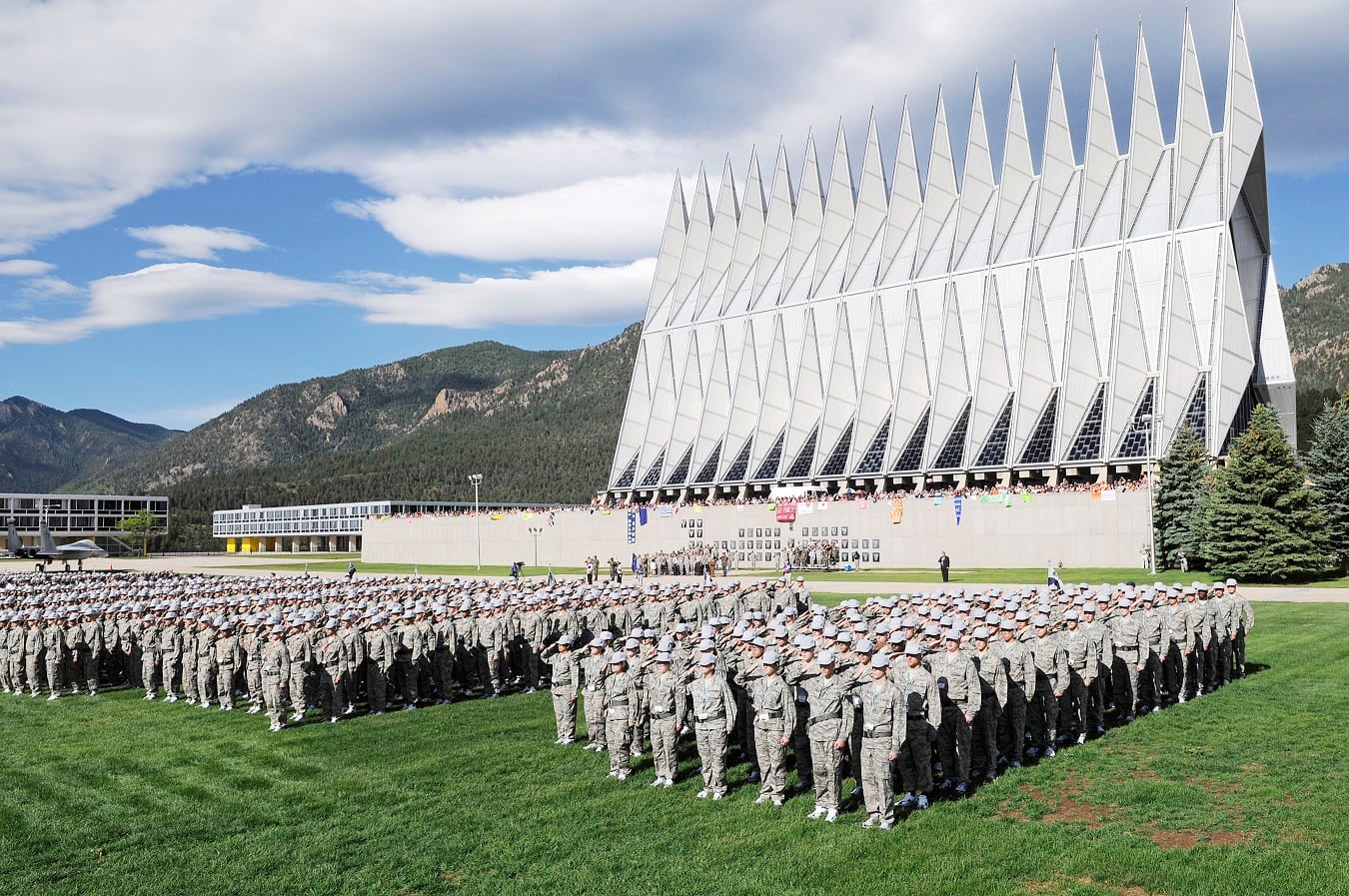DENVER — The Air Force Academy said Wednesday it would not discuss what led a student to allegedly stage a hate crime, but a researcher said those who commit hoaxes are sometimes trying to bolster their reputations or want to deflect attention from trouble they are in.
The academy said this week that an African-American student acknowledged writing anti-black slurs in a dormitory in September and that an investigation confirmed the student was responsible.
The epithets prompted academy superintendent Lt. Gen. Jay Silveria to sternly warn students that racists were not welcome at the school, and he invoked some of the racial tensions that have been gripping the country. A video of the speech has been widely viewed online.
Silveria stood by his comments Tuesday after the slurs were revealed to be a hoax, saying the need for a culture of respect can never be overemphasized.
Academy spokesman Meade Warthen said he could not discuss what may have motivated the student, citing privacy laws.
RELATED

Brian Levin, director of the Center for the Study of Hate and Extremism at California State University, San Bernardino, said hate-crime hoaxes are often meant to attract or divert attention or they can be a political statement.
The slurs were found at a prep school on the Air Force Academy grounds outside Colorado Springs. The prep school helps potential academy cadets meet the academy’s entrance requirements.
The student, whose name was not released, has left the school, but officials will not say whether the student was expelled or withdrew.
Many hate-crime hoaxes occur in school settings, Levin said.
“I think that schools and universities are perceived as places that are more embracing to victims of such a tragedy (as a hate crime),” he said. “A place where the culture is to rally around victims of prejudice, such as universities, would be a reason.”
Hate-crime hoaxes seem to be on the rise, but the number is tiny compared with actual hate crimes, he said.
The FBI said 5,850 hate crimes were reported to law enforcement in 2015, an average of 16 a day. Levin estimated that no more than three hoaxes a month occur nationwide.
He worries that hoaxes will discourage real victims from coming forward for fear of being attacked or doubted.
“Most hate crimes are not reported to begin with, so that’s why this is a worrisome development,” Levin said.
The Air Force Academy announcement was the second time this week that a hate crime was exposed as a hoax. Police in Manhattan, Kansas, said Monday that a black man acknowledged putting racist graffiti on his own car as a Halloween prank.
That followed a string of incidents at Kansas State University in Manhattan since May. A noose was left in a tree, white supremacist fliers were found on campus and an anti-gay slur was written outside the student union.



